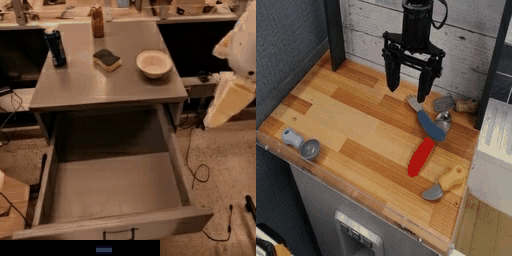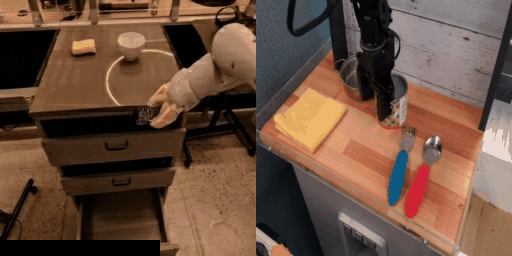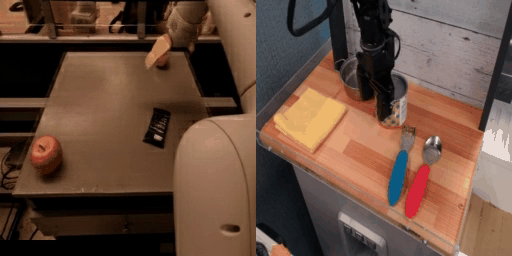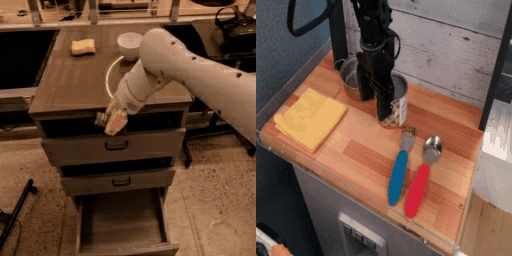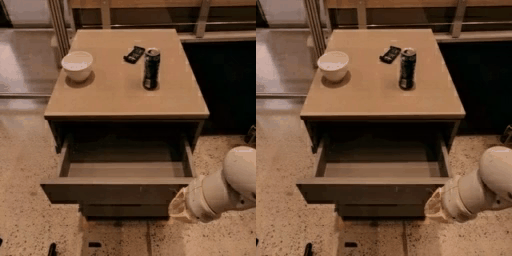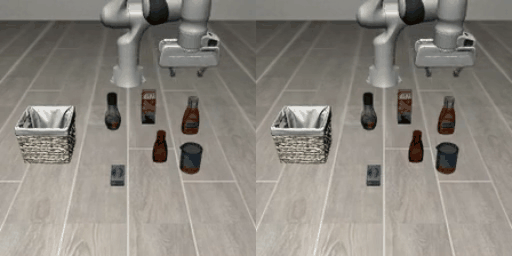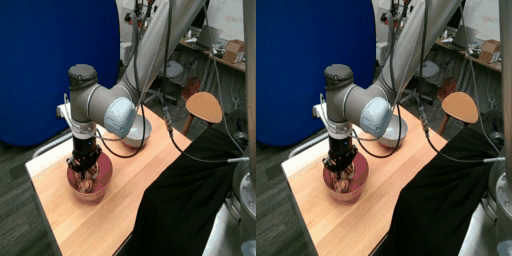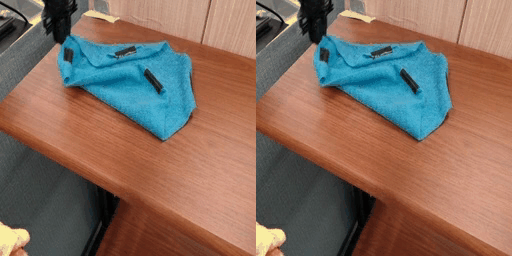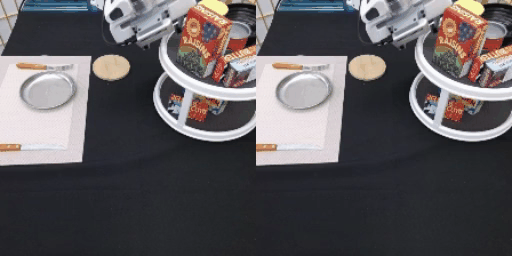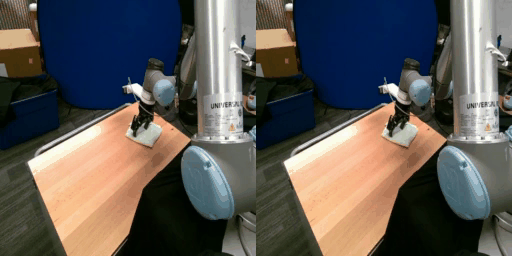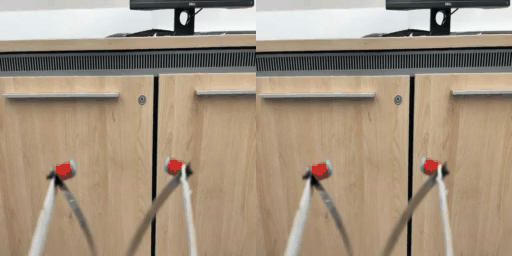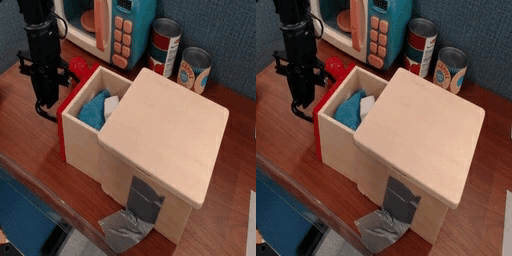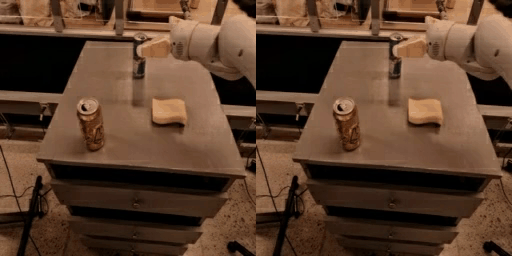WorldGym: World Model as An Environment for Policy Evaluation
1Stanford University, 2NYU, 3Google DeepMind
🎮 Try Interactive Demo
📁 GitHub
📄 Arxiv
Abstract
Evaluating robot control policies is difficult: real-world testing is costly, and handcrafted simulators require manual effort to improve in realism and generality. We propose a world-model-based policy evaluation environment (WorldGym), an autoregressive, action-conditioned video generation model which serves as a proxy to real world environments. Policies are evaluated via Monte Carlo rollouts in the world model, with a vision-language model providing rewards. We evaluate a set of VLA-based real-robot policies in the world model using only initial frames from real robots, and show that policy success rates within the world model highly correlate with real-world success rates. Moreoever, we show that WorldGym is able to preserve relative policy rankings across different policy versions, sizes, and training checkpoints. Due to requiring only a single start frame as input, the world model further enables efficient evaluation of robot policies' generalization ability on novel tasks and environments. We find that modern VLA-based robot policies still struggle to distinguish object shapes and can become distracted by adversarial facades of objects. While generating highly realistic object interaction remains challenging, WorldGym faithfully emulates robot motions and offers a practical starting point for safe and reproducible policy evaluation before deployment.
Overview of WorldGym
Correlation between Real-World and Simulated Policy Performance
Policy Rollouts on Bridge and Google Robot
Policy Ranking within a World Model
Out-of-Distribution Inputs
OOD Language Instructions
Effect of OOD Distractors
Rollout Examples
Comparing (ground truth, generated) rollouts for unseen action trajectories across different robots, using a single interactive diffusion model.
In-World-Model Rollouts on Bridge Tasks
| Task ▼ / Policy ▶ |
OPENVLA-7B |
OCTO BASE-1.5 |
RT-1-X |
| Put eggplant into Pot |

|

|

|
| Put corn on plate |
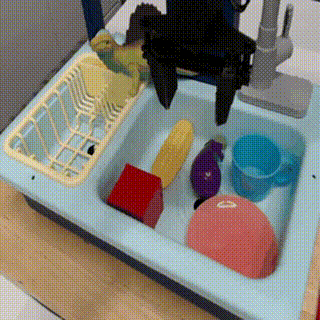
|

|

|
| Take grapes out of Pot |

|

|

|
In-World-Model Rollouts on RT-1 Tasks
| Task ▼ / Policy ▶ |
OPENVLA-7B |
OCTO BASE-1.5 |
RT-1-X |
| Pick Blue Chip Bag |

|

|

|
| Close the drawer |
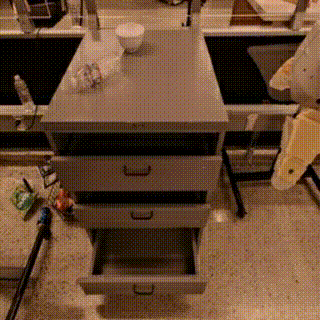
|

|

|
Out of Distribution Image Rollouts
| Task ▼ / Policy ▶ |
OPENVLA-7B |
OCTO BASE-1.5 |
RT-1-X |
| Pick up Carrot (With Computer on side) |

|

|

|
| Pick up Orange (Replace Carrot with Radish) |

|

|

|
| Pick Circle |
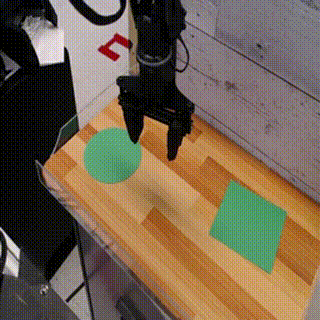
|

|

|
Out of Distribution Language Instruction Rollouts
| Task ▼ / Policy ▶ |
OPENVLA-7B |
OCTO BASE-1.5 |
RT-1-X |
| Put Plate On Drying Rack |
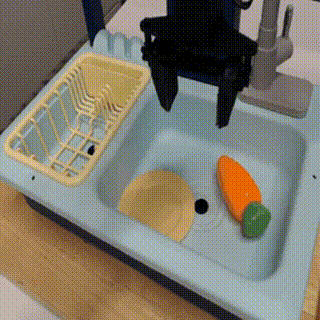
|

|

|
| Move Pot With Grapes Into Drying Rack |

|

|

|
Citation
If you find this work useful, please cite:
@misc{quevedo2025worldgymworldmodelenvironment,
title={WorldGym: World Model as An Environment for Policy Evaluation},
author={Julian Quevedo and Ansh Kumar Sharma and Yixiang Sun and Varad Suryavanshi and Percy Liang and Sherry Yang},
year={2025},
eprint={2506.00613},
archivePrefix={arXiv},
primaryClass={cs.RO},
url={https://arxiv.org/abs/2506.00613},
}
